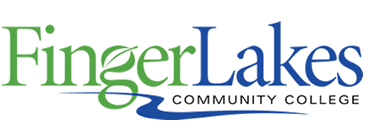Course Descriptions
Chemistry (CHM) Courses
CHM 092 Introduction to Chemistry (3-2) 4 imputed credits
An introductory chemistry course. Designed for students who have not previously taken a chemistry course in high school or college. This course meets the admission requirement for the AA Nursing program and also prepares students for CHM 121 General Chemistry. Topics include: the metric system, dimensional analysis, atomic and molecular structure, nomenclature, bonding, reactions, chemical calculations, periodicity, solutions, equilibrium, acids, bases, and the pH concept. Topics and laboratory experiences will relate to everyday experiences. This course carries imputed (financial aid) credit. It does not fulfill FLCC's Chemistry or general elective requirements.
View Course Syllabus 
CHM 110 Fundamentals of Chemistry (3-2) 4 credits
An intensive study of the fundamentals of chemical principles with an emphasis on developing the problem solving and study skills required to succeed in general chemistry (CHM 121). Topics include a review of basic math, dimensional analysis, formulas and nomenclature, chemical equations and reactions, stoichiometry, atomic and molecular structure, solution concentrations, and acids and bases. This course is designed to prepare students majoring in the sciences for the general chemistry sequence. Prior study of chemistry is not assumed. Prerequisite: Placement into Math Level 2 or higher. Co-requisite: MAT 145. Successful completion of all required remedial courses.
View Course Syllabus 
CHM 121 General Chemistry I (3-3) 4 credits
The first semester of a comprehensive two-semester general chemistry course. General principles of chemistry are introduced, including atomic structure, the periodic table, chemical calculations, classification of chemical reactions, nomenclature, kinetic theory of gases, ionic and covalent bonding, liquids and intermolecular forces to provide a thorough treatment of chemical principles. The course includes both laboratory and lecture. (CHM 092 or high school chemistry is strongly recommended)
Prerequisite: Placement into Math Level 2 or higher or MAT 097. This course carries SUNY General Education Natural Sciences (and Scientific Reasoning) credit.
View Course Syllabus 
CHM 122 General Chemistry II (3-3) 4 credits
Continuation of General Chemistry I. Topics covered include electronic structure and bonding theories, solutions, kinetics, equilibrium, acid-base chemistry, thermochemistry, thermodynamics, solids, organic and biochemistry, electrochemistry, coordination chemistry, descriptive chemistry of main-group elements, and nuclear chemistry. Prerequisites: CHM 121. This course carries SUNY General Education Natural Sciences (and Scientific Reasoning) credit.
View Course Syllabus 
CHM 205 Organic Chemistry I - Lecture (3-0-1) 4 credits
A systematic study of the chemistry of carbon compounds emphasizing reactions, mechanisms, and synthesis with a focus on functional groups, addition reactions to alkenes and alkynes, alcohols and ethers, stereochemistry, nomenclature, acid-base chemistry, reaction kinetics and thermodynamics. Prerequisite: CHM 122 with a grade of C or better.
View Course Syllabus 
CHM 206 Organic Chemistry II - Lecture (3-0-1) 4 credits
A continuation of the study of the reactions, mechanisms, and synthesis of organic compounds including amines, aldehydes, ketones, amines, carboxylic acids, carbonyl-containing compounds and their derivatives as well as a brief introduction to bio-organic molecules. The basic spectroscopic methods and principles to determine the structure of organic compounds is developed. Prerequisite: CHM 205 with a grade of C or better.
View Course Syllabus 
CHM 211 Organic Chemistry (3-3-1) 5 credits
A systematic study of the chemistry of carbon compounds emphasizing reactions, mechanisms, and synthesis with a focus on functional groups, addition reactions to alkenes and alkynes, alcohols and ethers, stereochemistry, nomenclature, acid-base chemistry, reaction kinetics and thermodynamics. Laboratory techniques include separation, recrystallization, distillation, extraction, chromatography and simple synthetic reactions. Prerequisite: CHM 122 with a grade of C or better.
View Course Syllabus 
CHM 212 Organic Chemistry II (3-3-1) 5 credits
A continuation of the study of the reactions, mechanisms, and synthesis of organic compounds including amines, aldehydes, ketones, amines, carboxylic acids, carbonyl-containing compounds and their derivatives as well as a brief introduction to bio-organic molecules. The basic spectroscopic methods and principles to determine the structure of organic compounds is developed. Laboratory techniques include functional group transformations, multi-step synthesis and a research project. Prerequisite: CHM 211 with a grade of C or better.
View Course Syllabus 
